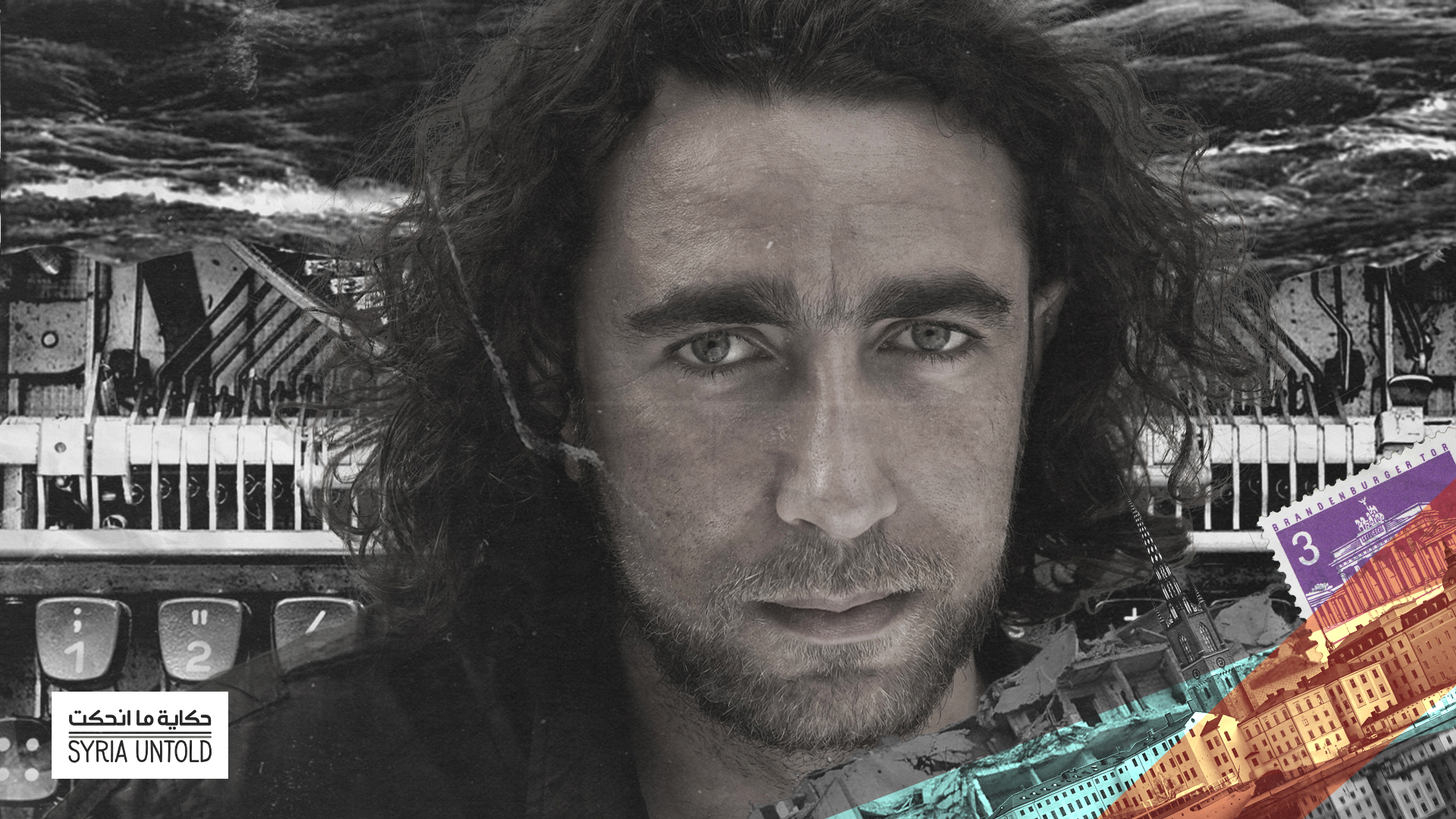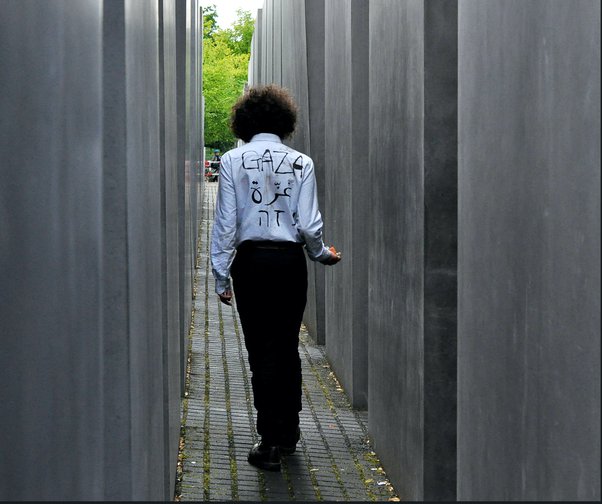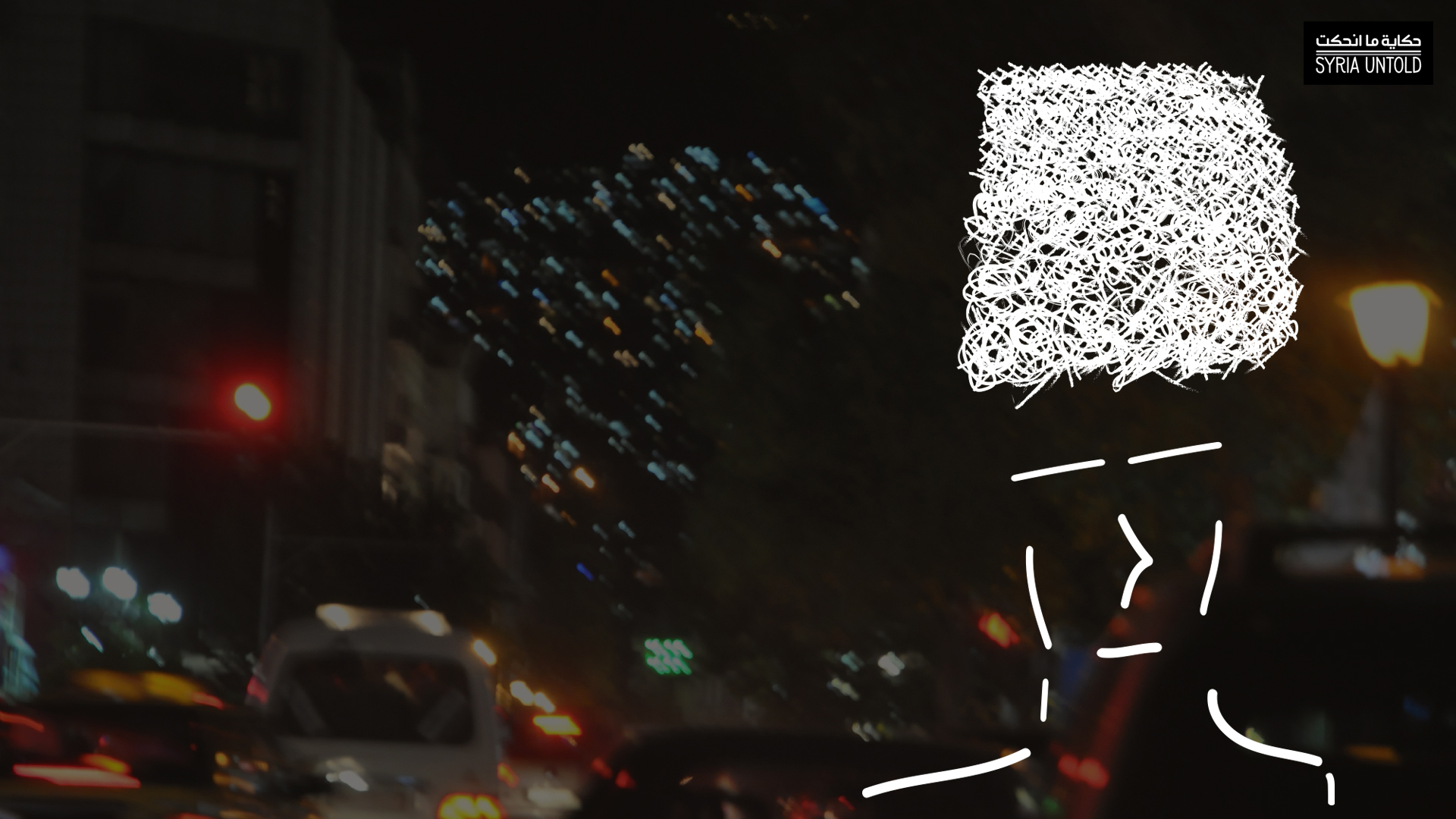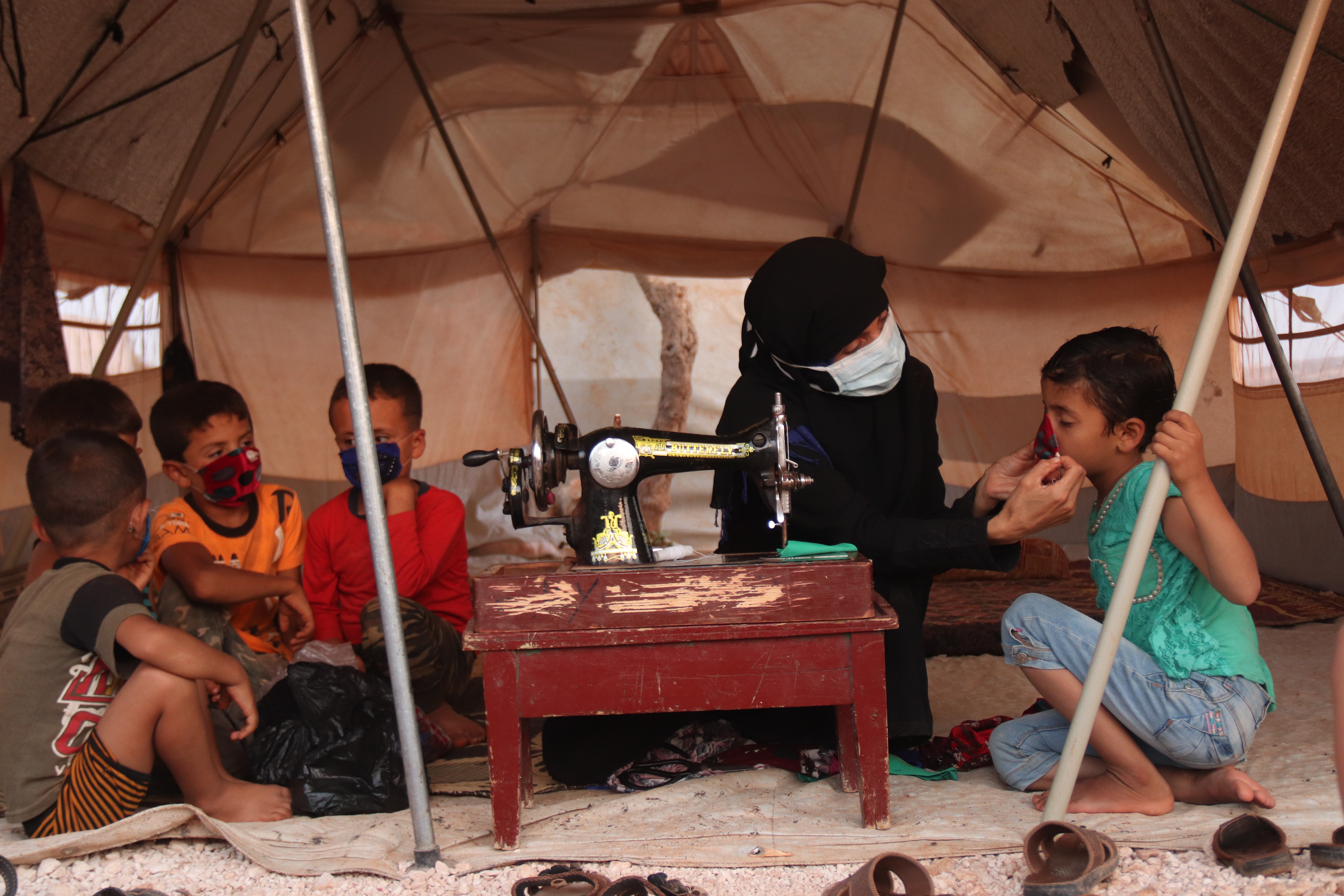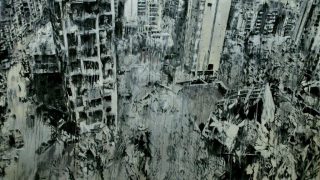Germany to allow deportations of 'suspect' Syrians (AFP)
“Germany said Friday it would allow deportation of Syrians to their war-ravaged homeland from 2021 if they are deemed a security risk, five years after a massive refugee influx.
The EU's biggest economic power and most populous member allowed in hundreds of thousands of people fleeing Syria's devastating civil war in 2015-16 but security officials said it was time to lift blanket protections against expulsion.” Read more
Syrian archives images of Damascus homes to preserve them (AFP)
Strolling through the alleyways of war-torn Syria's capital, Rania Kataf snaps photos of the city's famed houses, capturing their nooks and crannies for posterity. After seeing how vulnerable they had become during the country's devastating civil war, the 35-year-old began creating a digital archive of the buildings of Old Damascus. Watch video report
Homeschooling without a home (Newlines Magazine)
“In the refugee education space, variations of online learning have emerged from the last decade of global tech hackathons and humanitarian agencies’ ‘innovation’ labs. From pre-loaded tablets to MOOCs (massive open online courses) and schools-in-a-box, these quick solutions favored distanced learning with the high ratios of students to teachers and low costs.
These overly-optimistic solutions were not only out of touch, but they were born out of the same principle of scarcity that most ‘aid’ solutions favor for refugee and marginalized communities. Give them just enough to get by. Any schooling is better than nothing.
But is it really? What about a child’s mental health? What about teen socialization? What about the importance of face-to-face interaction with competent and empathetic teachers?
If you think navigating your children’s schooling during a pandemic is hard, try being a Syrian refugee mom.” Read more
Aid worker 'exploited, sexually abused several Syrian women': report (The New Arab)
A Syrian website dedicated to women's affairs has published a shocking report detailing instances of sexual harassment and exploitation allegedly carried out by a male Syrian aid worker and activist.
The report, written by Zaina Erhaim and Nidal Ayoub for the Mutaharirah website (known as Liberated-T in English), featured interviews with eight Syrian women who accused Ahed Murad, who worked with several Syrian and international NGOs, of attempting to exploit and intimidate them into sexual relations. Read more
The ghosts of the Assad regime continue to haunt Syrian refugees in the Netherlands (NRC)
“Raid is often restless, his wife tells, especially when he spends hours on end scanning his phone for news from loved ones in Syria who are at risk of arrest. At night, he is haunted by nightmares about his own torture. And even when he wakes up in his new Dutch home, Raid now realises, Assad’s henchmen may be just around the corner.
‘These are the people we fled from,’ he says. ‘In Syria they get away with anything. But here in the Netherlands, there are rules and laws. If they aren’t punished there, it should be done here.’” Read more
Pity the nation: Assessing a half century of Assadist rule (Atlantic Council)
“Fifty years ago, on November 13, 1970, Hafez al-Assad seized power from rival factions of the ruling Baath Party. Dubbed the ‘corrective revolution’ by his new regime, Assad’s coup d’état represented the defeat of a leftist faction and the ascent of party moderates. Yet few imagined at the time that this seizure of power by a disgruntled officer—one of a long string of similar coups in a country notorious for its instability—would mark the beginnings of the longest period of continuous family rule in Syria’s modern history.” Read more
Cracks in the Assad facade (Newlines Magazine)
“Over the years, ordinary citizens who support Assad, or are simply trapped in areas controlled by his regime, have generally come to differentiate between two kinds of powerful people in their country. In the first, they see illustrious and eloquent diplomats, traders whose wealth and reputation predates the Syrian civil war or even the regime itself, and industrialists who advocate for their respective cities’ prosperity.
In the second group, however, they see individuals who are much harder to admire: newly-minted lawmakers who, up until recently, were commanding brutal auxiliary militias, and businessmen of whom no one had heard of five years ago who had somehow built enormous wealth during the war.” Read more
Child recruitment casts shadow over Syrian Kurds' push for global legitimacy (Al-Monitor)
“‘Return my daughter Rawan Aleku to me, if you are honest. The pain of her disappearance is killing me. I’m fighting to get her back whatever it costs me, even my life,’ Umran wrote in a Facebook post Nov. 10.
Rawan is among dozens of minors who have been either willingly or forcibly recruited by Kurdish rebels to fight in battles spanning Syria, Turkey, Iraq and Iran, all home to large Kurdish minorities. Kurds have long accepted that some of their sons and daughters would have to be given up to the ‘cause’ — to wrest their rights from brutal regimes that have denied their existence and bloodily silenced those who dared to call themselves Kurds.” Read more
‘Hara Hotel’: On centering the Western narrator and stories about Syrian refugees (Arablit)
“In the last few years, we have witnessed a growing number of books documenting the Syrian refugee crisis. Some of these productions do very little to nuance the sometimes-negative media discourses and humanize a misunderstood refugee population. Some of these books, produced in the Global North, often characterize refugees as passive people who are in dire need of assistance; these authors have long passed judgment on these vulnerable populations, arguing that their background, be it cultural, religious, etc, make them different from the citizens of their host nations. In so doing, these unrealistic portrayals are being overstated.” Read more


